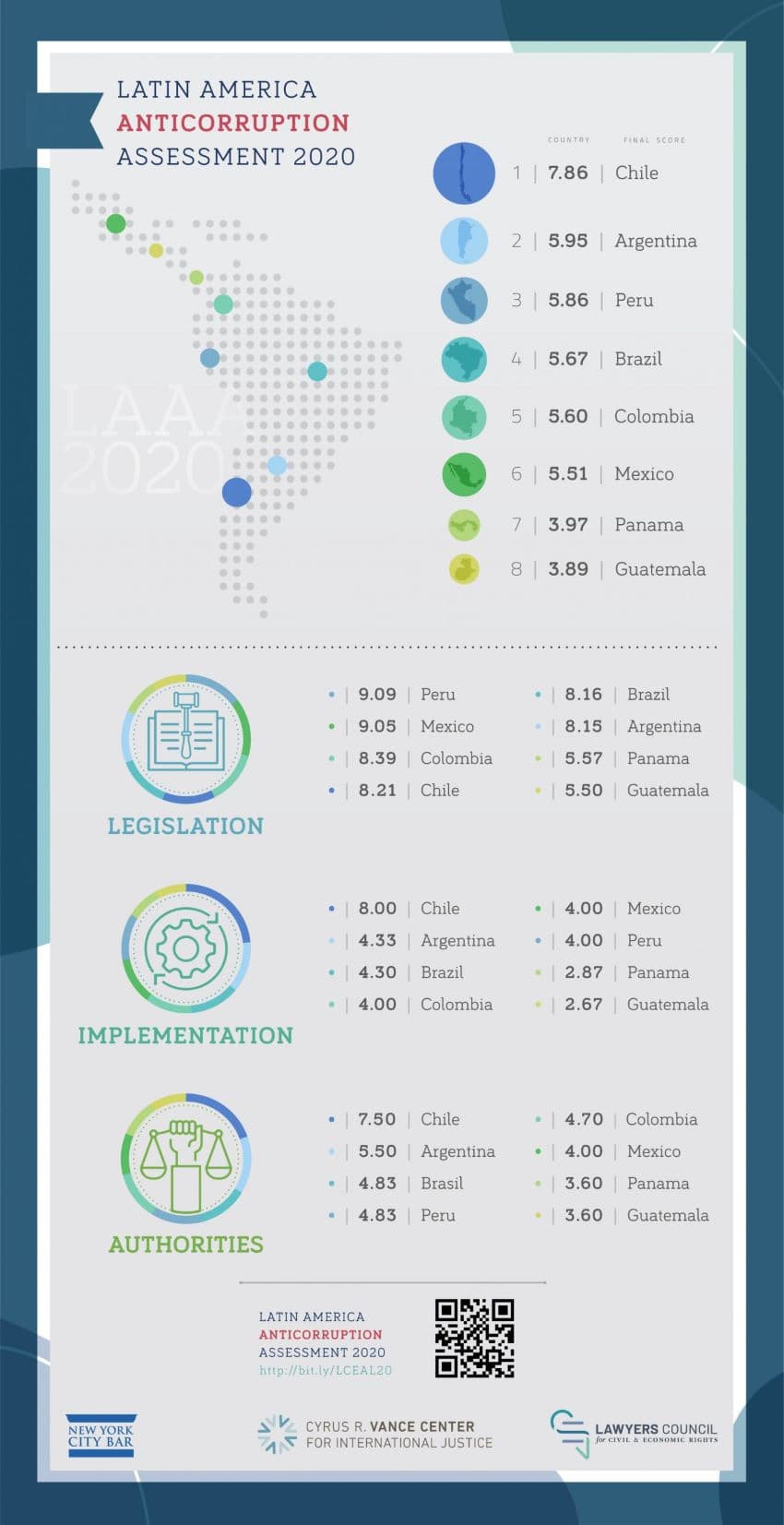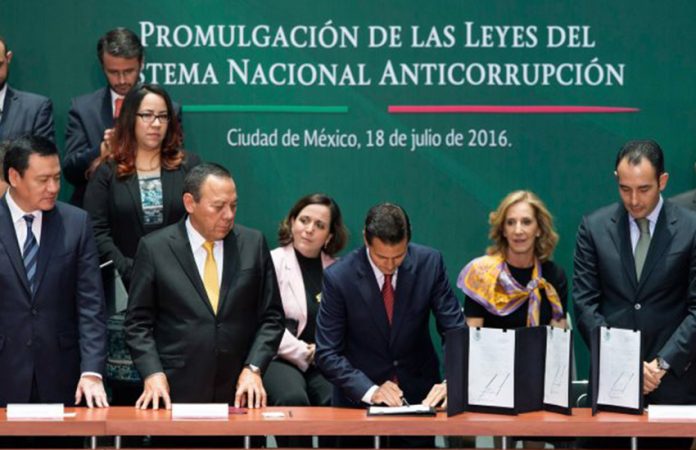Mexico has ranked third last in an anti-corruption assessment of eight Latin American countries conducted by the United States-based Cyrus R. Vance Center for International Justice.
The Vance Center, part of the New York City Bar Association, completed a regional study that analyzed legal efforts to prevent and combat corruption in Argentina, Brazil, Chile, Colombia, Guatemala, Mexico, Panama and Peru.
The Latin America Anticorruption Assessment 2020 addressed eight aspects that it sees as crucial to the fight against corruption: public and private sector corruption; complaint mechanisms; whistleblower protection by specialized governmental bodies; institutional coordination mechanisms; civil society engagement and participation and transparency and access to information.
Using information obtained via questionnaires completed by lawyers from member firms of the center’s Lawyers Council for Civil and Economic Rights — which is made up of private practice lawyers from across the Americas — and other members of the legal communities in the countries assessed, each nation was awarded a score on a zero to 10 scale.
Mexico ranked sixth with a score of 5.51, ahead of Panama and Guatemala, which ranked seventh and eighth, respectively. Chile came out on top with a score of 7.86 followed by Argentina, Peru, Brazil and Colombia.

Mexico’s overall score was formulated from its scores of 9.05 out of 10 for anti-corruption legislation; 4 for implementation of that legislation; and 4 for its anti-corruption authorities.
“Despite having a solid and comprehensive legal framework, Mexico stands out for a lack of regulatory implementation and reduced institutional capacity,” the Vance Center said. “In addition, anti-corruption authorities are subject to political influence.”
The center’s report noted that Mexico has a comprehensive anti-corruption legal framework, which was revised and reformed in 2016–2017 to create a national anti-corruption system.
It said that most legal professionals (LPs) agree that the legal framework is generally sufficient, but there was room for improvement.
“Despite the strength of the legal framework, LPs indicated that one or more of the anti-corruption laws or regulations have been difficult to implement, due to a lack of specificity, clarity, or definition in relation to other laws or regulations. They also highlighted both the lack of implementation of these laws and regulations and their application based on political lines,” the report said.
“LPs identified a lack of independence of anti-corruption authorities and a low institutional capacity, partly due to high political influence.”
The report said that people living in poverty and other vulnerable sectors of the population, such as migrants, were identified as most affected by corruption in Mexico.
Corruption and lack of transparency were also cited in the health sector, “where lack of medicines and care is of concern.”
The report noted that Mexico has several bodies with powers to prevent, investigate and punish corruption in Mexico.
But anti-corruption authorities do not have the independence necessary to prevent, investigate and prosecute corruption effectively, the Vance Center said.
“… LPs note that although one of the main objectives of the current administration is the fight against corruption, there is significant political influence that hampers this effort. Participants mentioned that there is a great deal of interest in prosecuting cases of corruption from past administrations, but not those involving current officials.”
Indeed, President López Obrador has largely shrugged off corruption accusations leveled at his administration while frequently reminding citizens of the corruption that plagued the country before he took office.

He declared in late 2019 that there was “zero corruption” in the federal government as a result of his efforts to eradicate it, but several corruption allegations — including claims against government programs and government officials — have been made against his administration since then.
The Vance Center report follows the publication of various other reports stating that high levels of corruption continue to plague Mexico and the government.
Mexico ranked 124th out of 180 countries on Transparency International’s 2020 Corruption Perceptions Index, while a report published last month by Mexican NGO Signos Vitales said there was evidence that the dual “evils” of corruption and impunity continue to persist despite López Obrador putting the fight against them at the center of his administration’s agenda.
Polls indicate that many ordinary Mexicans are also skeptical about the president’s claims that he has eliminated or at least drastically reduced corruption.
A majority of respondents to a poll published last September said that corruption had increased over the past year while 59% of respondents to a survey published last week indicated they were unimpressed with the efforts of the federal government to combat corruption, a 13-point jump compared to March and a 22-point increase compared to January.
Mexico News Daily
